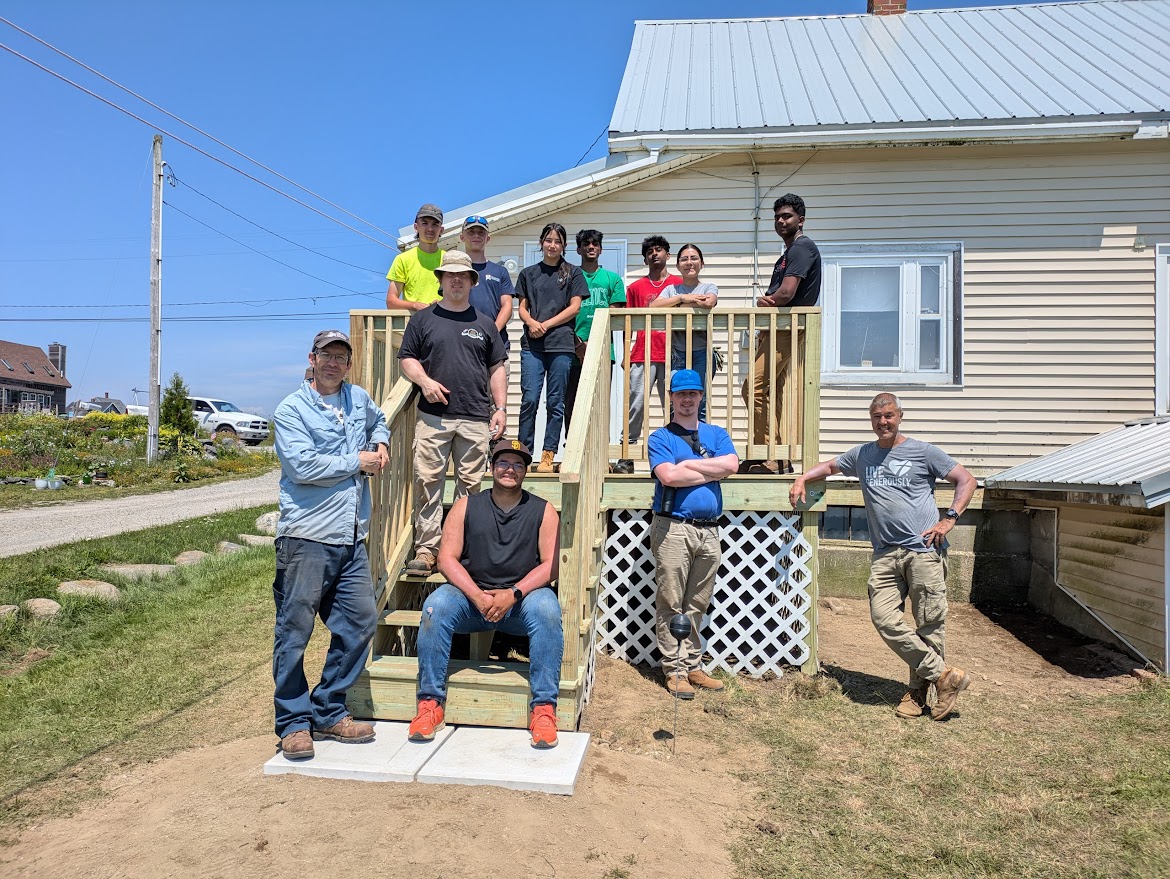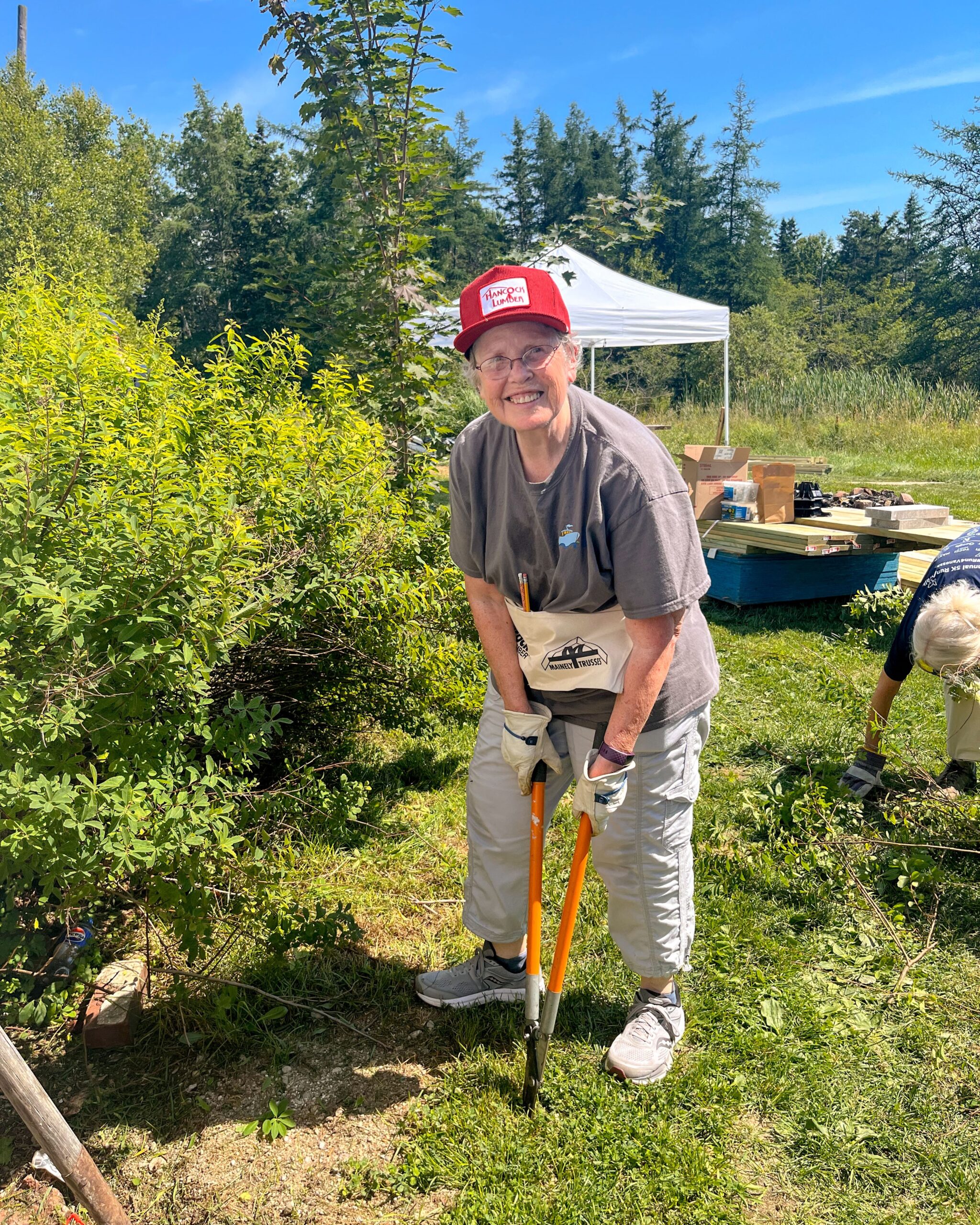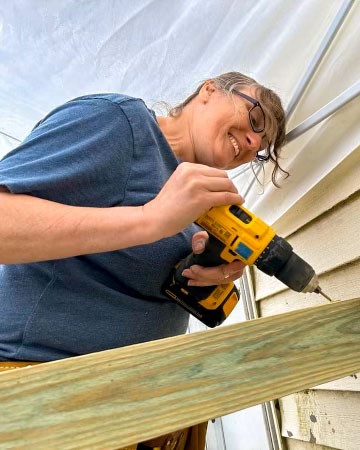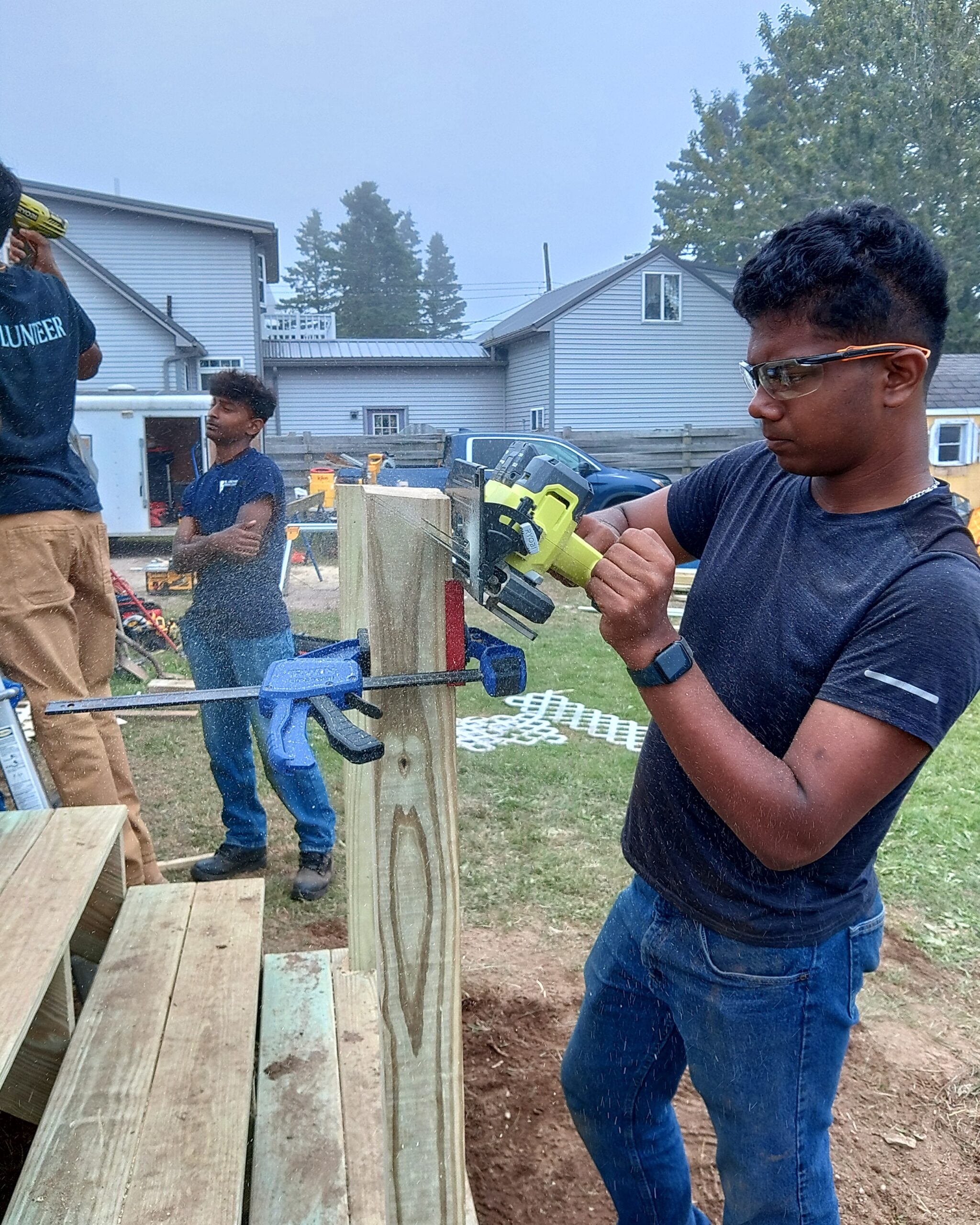
70 volunteers from 11 states made their way to the Mission’s Downeast Campus this summer to make much needed repairs to homes in the area. For more than 20 years, hundreds of volunteers have each spent a week in Cherryfield as part of the Housing Improvement program, helping the community and exploring Downeast Maine.
Your gift to the Maine Seacoast Mission makes you part of all we do.
Six volunteer groups came from Arkansas, California, Connecticut, Kentucky, Maine, Massachusetts, Michigan, North Carolina, Ohio, Tennessee, and Wyoming, and for the second year, included a group of sisters from Sigma Kappa. These volunteers helped homeowners clean up storm damage in their yards, replaced siding, added skirting to mobile homes, installed storm doors, and both fixed and added on decks and stairs. The work done on these homes makes them safer, accessible, and more energy efficient, which is the goal of the Housing Improvement program.



“All of the volunteers showed amazing grit, working through rainstorms, extreme heat, and difficult situations” says Housing Improvement Program Director Jennifer Kempthorne. “And they did it all with a cheerful attitude and kindness.” The groups stay on the Mission’s Downeast Campus, and when they find themselves with down time, they explore the local area. Some excursions include visiting the nearby Schoodic Peninsula or Acadia National Park, enjoying a lobster bake, or going to one of the nearby beaches. Some groups come back and volunteer over multiple years, creating a deep connection with the area, and program, and of course, the Mission.
This year, the groups also learned more about the Mission’s vast history, and its work both in Downeast Maine and on outer, unbridged islands. Devin Mack, Development Operations Associate, shared more about the Mission’s program areas: island health and outreach, primary and secondary education, scholarships, food security, community engagement, and housing improvement. These program areas all fall under the umbrella of the Social Determinants of Health, which are five non-medical factors that influence health outcomes. This framework has been accepted by the United Nations (UN) and the Center for Disease Control and Prevention CDC, with the UN writing that the Social Determinants of Health can be more important than access health care or lifestyle choices in a person’s health outcomes. These talks gave volunteers a greater idea of the breath of programming the Mission offers. Devin also shared with volunteers how they could stay engaged with the Mission year-round through things like donations through both the online giving platform and through the Mission’s program and Christmas wish lists.
Learn more about the Housing Improvement program and its impact.
